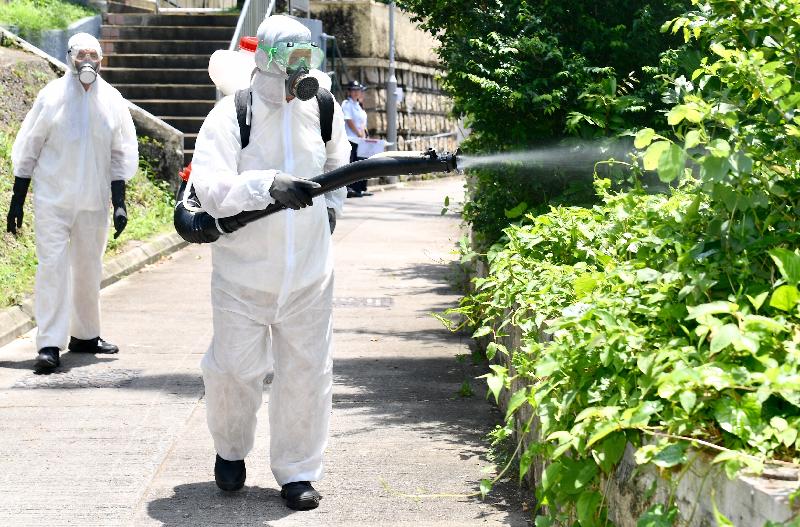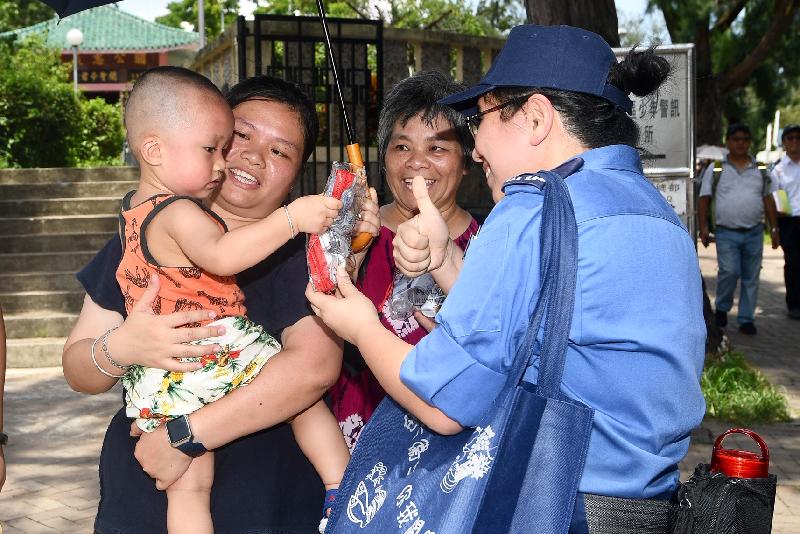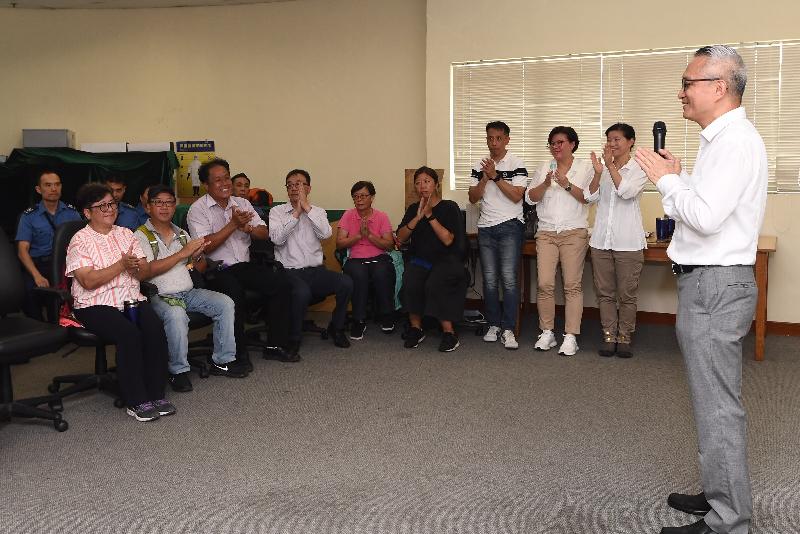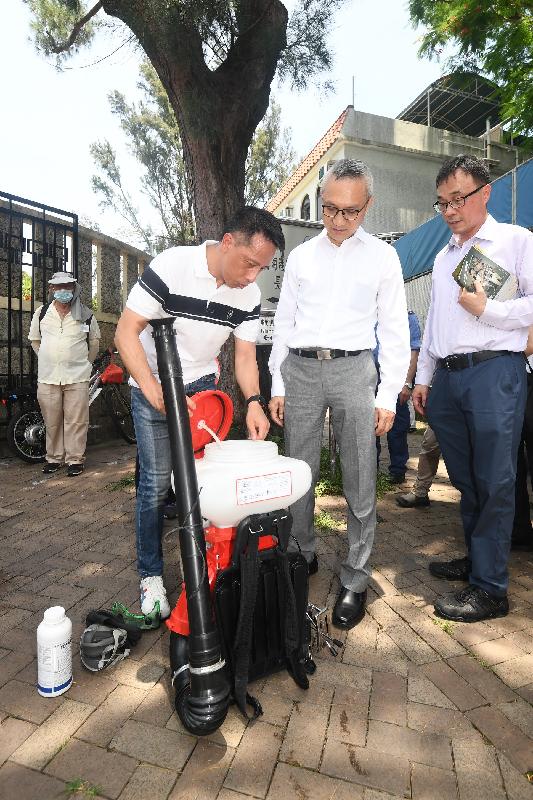Government departments work with district groups in mosquito prevention and control on Cheung Chau (with photos)
As Hong Kong is entering the peak season of mosquito breeding, different government departments including the Food and Environmental Hygiene Department (FEHD), the Home Affairs Department and the Civil Aid Service, together with the Islands District Council and the Cheung Chau Rural Committee, held a joint mosquito prevention and control operation on Cheung Chau today (June 8) to publicise mosquito prevention messages and to raise public awareness on mosquito-borne diseases.
The Under Secretary for Food and Health, Dr Chui Tak-yi, said, "Aedes albopictus, a kind of mosquito that can transmit dengue fever, breeds in small water bodies. In the past two weeks, rain was recorded in different places in Hong Kong. Stagnant water can lead to mosquito infestation, and hot and humid weather like that seen in recent days is conducive to large-scale mosquito breeding in a short period of time. The public must take effective mosquito control measures early.
"District community leaders and groups are very familiar with district issues. Their support and assistance at the district level is vital in the promotion of anti-mosquito measures to residents. The collaboration of all government departments and the participation of all members of the public is crucial for mosquito control. Members of the public should also maintain personal hygiene and prevent mosquito breeding in their everyday lives."
Among the local dengue fever cases recorded last year, the patients of a number of cases resided in or visited Cheung Chau during the incubation period. In view of the dengue fever cases last year, the Government has already commenced the territory-wide All-out Anti-mosquito Operations before the onset of the rainy season. Various departments will continue to conduct fogging operations in the scrubby areas within a 100-metre radius around residences to kill adult mosquitoes weekly till the end of the rainy reason.
"The FEHD is exploring to modify the design of the ovitrap with a view to obtaining data on Aedes albopictus through the collection of information on adult mosquitoes to give more information on adult mosquito density," Dr Chui said.
Public advice on mosquito control
- Thoroughly check all gully traps, roof gutters, surface channels and drains to prevent blockage;
- Scrub and clean drains and surface channels with an alkaline detergent compound at least once a week to remove any deposited mosquito eggs;
- Properly dispose of refuse, such as soft drink cans, empty bottles and boxes, in covered litter containers;
- Completely change the water of flowers and plants at least once a week. The use of saucers should be avoided if possible;
- Level irregular ground surfaces before the rainy season;
- Avoid staying in shrubby areas; and
- Take personal protective measures such as wearing light-coloured long-sleeved clothes and trousers and apply insect repellent containing DEET to clothing or uncovered areas of the body when doing outdoor activities.
Reduce risk of infections
To reduce the risk of infections spread by mosquitoes, apart from general measures, travellers returning from affected areas should apply insect repellent for 14 days (dengue fever) or at least 21 days (Zika virus infection) upon arrival in Hong Kong. If feeling unwell, seek medical advice promptly and provide travel details to a doctor.
Tips for insect repellents
DEET-containing insect repellents are effective and the public should take heed of the tips below:
- Read the label instructions carefully first;
- Apply right before entering an area with risk of mosquito bites;
- Apply on exposed skin and clothing;
- Use DEET of up to 30 per cent for pregnant women and up to 10 per cent for children*;
- Apply sunscreen first, then insect repellent; and
- Re-apply only when needed and follow the instructions.
* For children who travel to countries or areas where mosquito-borne diseases are endemic or epidemic and where exposure is likely, those aged 2 months or above can use DEET-containing insect repellents with a DEET concentration of up to 30 per cent.
People should call 1823 in case of mosquito problems and may visit the dengue fever pages of the CHP and its Travel Health Service, the latest Travel Health News, tips for using insect repellents, the CHP Facebook Page and YouTube Channel, and the FEHD's Guidebook on Control and Prevention of Mosquito Breeding for more information.







